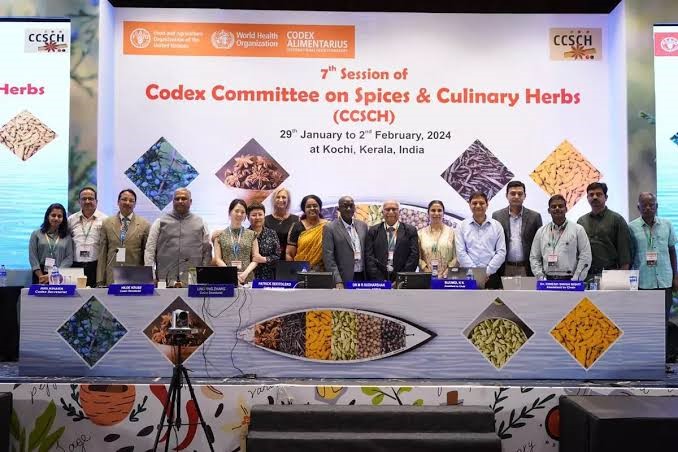
Codex Committee on Spices and Culinary Herbs

05.02.2024
Codex Committee on Spices and Culinary Herbs , Daily Current Affairs, RACE IAS : Best IAS Coaching in Lucknow
|
For Prelims: About Codex Committee on Spices and Culinary Herbs,Codex Alimentarius Commission |
Why in the news?
The 7th session of the Codex Committee on Spices and Culinary Herbs (CCSCH) was held from 29th January 2024 to 2nd February 2024 at Kochi.
About Codex Committee on Spices and Culinary Herbs
- It was established as one of the Commodity Committees under the Codex Alimentarius Commission (CAC) in 2013.
- India has hosted this prestigious Committee since the beginning and Spices Board India serves as the secretariat organization which organizes the Committee's sessions.
- In CCSCH 7th session quality standards for 5 spices, namely small cardamom, turmeric, juniper berry, allpice and star anise were finalized.
Codex Alimentarius Commission
- It was jointly established by FAO and WHO.
- It is an international, intergovernmental body which is based in Rome.
- Members: It consists of 189 member countries.
- Membership of the Commission is open to all Member Nations and Associate Members of FAO and WHO which are interested in international food standards.
- The Commission meets in regular sessions once a year, alternating between Geneva and Rome.
- Funding: The programme of work of the Commission is funded through the regular budgets of WHO and FAO, with all work subject to the approval of the two governing bodies of the parent organisations.
- The Commission works in the six official languages of the UN.
- The standards of CAC are recognized by the WTO as international reference points for the resolution of trade disputes concerning food safety and consumer protection.
- The standards developed by the Committees under the CAC, including the CCSCH, are voluntary in nature, which the member countries of the CAC adopt and use as reference standards to align their national standards.
- The works of CAC contribute to harmonization of food standards across the globe, facilitate fair global trade in food, and enhance food safety to safeguard the health of global consumers.
Source:PIB